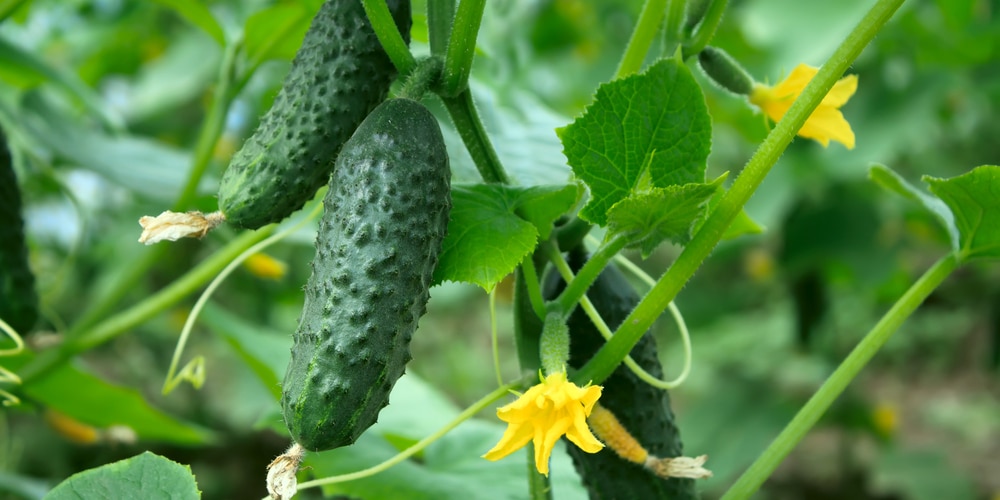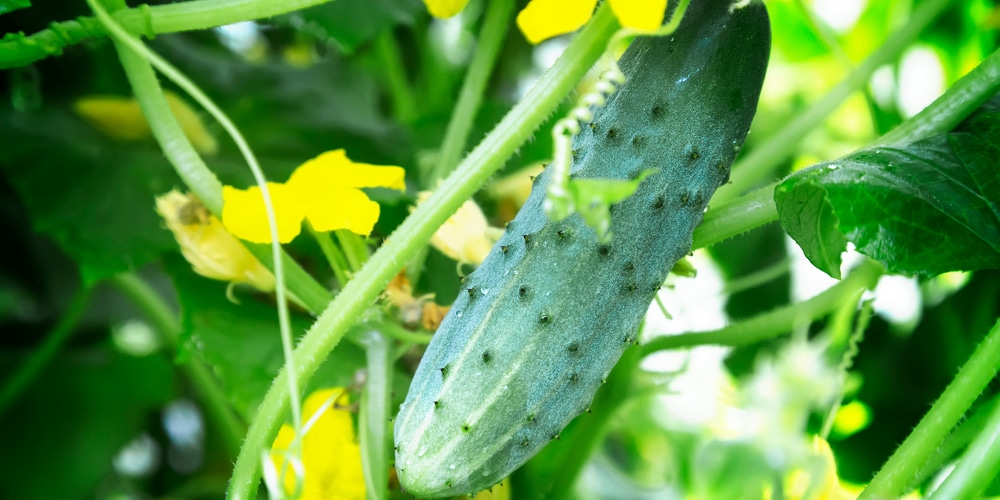Flower gardeners often use Epsom salts as a fertilizer because it contains magnesium needed for healthy plants. Epsom salt (chemically known as magnesium sulfate) benefits plants in many ways: it can kick-start germination, make plants grow bigger, and help flowering plants produce more flowers. It also deters pests like bugs and voles.
Since this little gardening hack works for flowering plants, you may wonder if Epsom salt works for cucumbers. Keep reading to learn the answer!
Cucumbers and Epsom Salts: Friend or Foe?
If you’ve ever wondered if your cucumber plants would like a little something extra in their diet, you’re not alone. They are notoriously finicky eaters, making it hard to know what cucumbers need in their diet. However, you might be surprised to learn that cucumber plants love Epsom salts.
Epsom salts are full of nutrients that cucumbers need, and they help the plants absorb more water. Epsom salts contain magnesium, which is an essential nutrient for cucumbers (and other plants).
Magnesium helps the plant to produce chlorophyll, which is important for photosynthesis. The magnesium sulfate in Epsom salt strengthens cell walls in cucumber plants, resulting in healthier plants that are better able to resist disease.
Epsom salts can help to improve the flavor of cucumbers by increasing the concentration of sugars in the fruit. In addition, Epsom salts can help to improve drainage and prevent root rot.
Best Application Methods for Cucumber Plants
Cucumbers are cool weather crops and can be planted in the garden as soon as you can work the soil. They like rich, fertile soil with plenty of organic matter. Try adding Epsom salts to the soil to boost your cucumber plants.
Watering the Soil
To give your cucumber plants a dose of Epsom salt, mix one tablespoon of salt with one gallon of water.
Once a month, use this mixture to water your cucumber plants. Be sure to soak the roots thoroughly and only apply this solution if your plant shows symptoms of magnesium deficiency.
Spraying the Leaves
Another option is to spray the leaves of your plant rather than water the roots. Once you have mixed the solution and the salt has dissolved, transfer this to a spray bottle. Apply it to the leaves of your plants, being sure to avoid the flowers.
Remember this method does not replace your daily watering. If you spray the leaves, you must also water the roots like normal.
Salt the Soil
This option involves no water, only straight Epsom salts. You can sprinkle about 2-3 tablespoons of your Epsom salts onto the soil of your cucumber plants.
This method works best if you are trying to encourage a faster growth rate.
Conclusion
Using Epsom salts on cucumber plants is a gardening tip that many generations used. And there’s a good reason why cucumber growers keep returning to this trusted method – it works!
Depending on your reasons for using Epsom salts, various application methods are available. Some of the most common methods include watering the roots of your plant, spraying the leaves of the cucumbers (avoid the flowers), and sprinkling straight salt to the base of your plant.
Just be sure not to overdo it, as too much magnesium can harm plants or even kill the grass surrounding your plants. You’ll soon find the perfect balance for your garden with a little trial and error.

